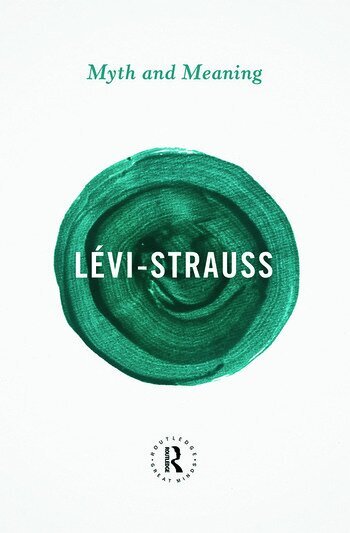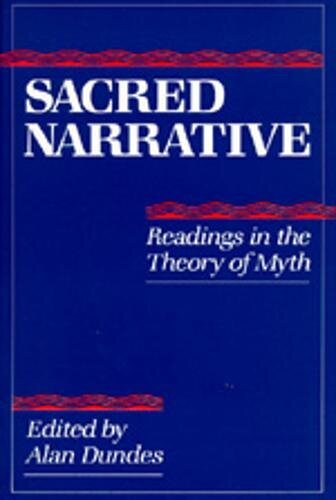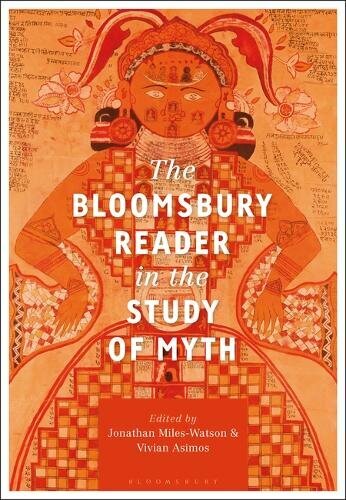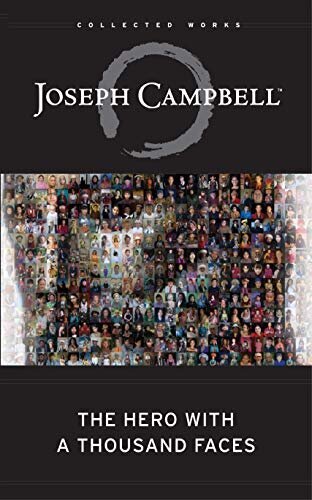Research Roundup: The Meaning of Mythology
 Disclosure: Please be aware that some of the links in this post are affiliate links. If you go through them to make a purchase I will earn a commission. The commission does not affect your purchase price, nor my willingness to include them. I include them because I believe they are worth supporting.
Disclosure: Please be aware that some of the links in this post are affiliate links. If you go through them to make a purchase I will earn a commission. The commission does not affect your purchase price, nor my willingness to include them. I include them because I believe they are worth supporting.Being as this is a blog and website devoted to mythology, incidentally or not, I feel it a bit lacking that I haven’t yet put together something which helps people who are first embarking on the glorious journey that is mythology. Many beginning their interest in mythology start with reading the glorious tales, from Welsh to Greek to Indian. But after getting a lot of these in your head, you start to wonder about what it all means – how to explain all these wonderful myths, both their similarities and their differences.
This list is for that secondary thought, that curious wondering as to what it all means and why so many people from all around the world have cared enough in words to tell stories in the first place. This list is for those who wonder about the meaning of mythology and want to dig into all the reasons why it’s so unique but also so everywhere.
 Introduction to the Study of Myth - Downloadable Course
Introduction to the Study of Myth - Downloadable Course All personal biases aside, I do think something like this would be best served for those only just now embarking on the more analytical side of mythology. More analytical approaches to mythology are quite varied, in more ways than those more used to reading the wonderful volumes of anthologies of myths may realise. A course which introduces you to each of the ways myth can be analysed can help you navigate this world and find the way that makes the most sense to you in as easy digestible a format as possible.
Getting downloadable courses, like the ones I have on offer, allows the course to fit into your busy life without clogging anything up. It’s entirely self-directed, so you can even jump around in the course to fit your own interests.
My own course not only introduces many approaches and theorists to you, but also provides you with several readings by these scholars, as well as lists of references for you to keep going where you find your bliss. To help get anyone started in this endeavour, I’ve put a sale on my courses – if you use discount code MYTH2021 at checkout, you can get any of my courses, including Introduction to the Study of Myth, for 25% off.
 Claude Lévi-Strauss – Myth and Meaning
Claude Lévi-Strauss – Myth and Meaning Myth and Meaning by Claude Lévi-Strauss is a wonderful starting point to hearing about interesting aspects of how to study mythology and get at the heart of its meaning. Lévi-Strauss’s brand of anthropological Structuralism can sometimes be a bit of a confusing and complicated world, but Myth and Meaning truly helps to break down the complicated bit of analysis and leaves you with the wonderful sense of myth’s majesty – you get all the senses of the importance of myth and how Levi-Strauss views myth with none of the boring.
Obviously, the positive aspect of removing the complication is also a potential drawback. If you’re wanting to get hard and fast into structural analysis of myth, this wouldn’t really do the trick for you (if this is you, grab the Raw and the Cooked by Lévi-Strauss). But if you’re only just starting out and unsure where exactly you want to plant your analysis flag, this will really help to give you the overview with none of the annoying.
 Alan Dundes – Sacred Narratives
Alan Dundes – Sacred Narratives Sacred Narratives is an anthology of different ideas and approaches, edited together by folklorist Alan Dundes. That’s right – a folklorist! This anthology isn’t limited to conversations about myth, but extends it to the other special narratives in the world like folklore and legends.
This particular text is a staple for any academic and academically-minded person pursuing the study of these types of narratives, whether it be myth or otherwise. However, it is a bit of an older text. There haven’t been any newer editions in the last several decades, so most of these readings provide the fundamentals for more contemporary writers rather than being written by them. That being said, it’s still a valuable piece of information if you wanting to know more about these fundamentals.
 Jonathan Miles-Watson and Vivian Asimos – The Bloomsbury Reader in the Study of Myth
Jonathan Miles-Watson and Vivian Asimos – The Bloomsbury Reader in the Study of Myth Another anthology, but a slightly different one this time round. This is one I edited together with my friend and colleague Jonathan Miles-Watson. The purpose behind the text was to aid courses geared toward undergraduates on the subject of the analysis of mythology. So in that sense, it’s right for anyone who wants that level of introduction to the topic.
The way this anthology works is that it provides readers with small sample-sizes of a variety of other readings, along with introductions to each one. This means that you’re not getting someone else’s interpretation, but you’re also not needing to invest in dozens of books and articles to get your hands on them.
 Joseph Campbell – The Hero with a Thousand Faces
Joseph Campbell – The Hero with a Thousand Faces Joseph Campbell’s The Hero with a Thousand Faces is perhaps the most well-known piece of writing on the analysis of mythology. Campbell’s book is focused on the idea that all myths, and all successful books and movies outside of myths, is based on the same steps of the hero’s journey. His book breaks down this journey, and also spends some time on each step.
Campbell is a universalist theory – he believes that every myth in the world can be analysed the same way using the same steps. Not every approach to myth follows this, though. Campbell’s approach, while the most popular, is not the only accepted one. However, it’s hard to go through most discussions of mythology, especially mythology and popular culture, without stumbling into this and dealing with it. Whether you approach it because you agree and love it, or because you simply need the background before moving on, it’s still worth a read.
[image error] Keith H. Basso – Wisdom Sits in PlacesBasso’s Wisdom Sits in Places has been a recent favourite of mine – not because it’s a recent publication but because it’s recent to me. There is an inherent connection between mythology and the landscape, but that’s not always something that people spend a lot of time talking about. Basso’s book does spend that time. This book is all about how myth is within our landscape, and how landscape is inherently within our myths.
For those newly embarking into the world of academic texts, this may read – at times – a bit dense. But these bits are only occasional, and overall I found the book incredibly pleasing to read. It was an easy flow most of the time, and even had some really beautiful moments as well. It’s a strong suggestion for anyone whose interested in learning more about how mythology impacts our understanding of place names, and even of the landscape itself.
 Jack Goody – Myth, Ritual and the Oral
Jack Goody – Myth, Ritual and the Oral Goody’s Myth, Ritual and the Oral spends time connecting myth to the other core aspects of mythology people think about: oral recitation and ritual. Goody spends the first part of the book really breaking down some definitions of mythology, definitions of ritual, and how myth and ritual all connect to one another. It’s a great entry point to this particular perspective on myth for anyone whose interested in getting into these aspects.
Like Basso, there are definitely paragraphs here and there which can be a slog, but overall it’s actually a surprisingly easy read that is still full of references, citations and guidance on where to go. Personally, I don’t always agree with everything he has to say, but it is a wonderful exploration through the worlds of religion, mythology and ritual.
I hope this list provides a solid starting place to someone who really wanted to have their interests satisfied but wasn’t sure where to start. I’m obviously a little biased, but getting into the nitty-gritty of myth’s meanings is one of the most fascinating endeavours. There’s so much diversity, so much thought, and so much nuance. Our worlds are really filled with narratives and storytelling and the performance of these myths, and getting into what they really say about us is definitely worth the time.
Disclosure: Please be aware that some of the links in this post are affiliate links. If you go through them to make a purchase I will earn a commission. The commission does not affect your purchase price, nor my willingness to include them. I include them because I believe they are worth supporting.


